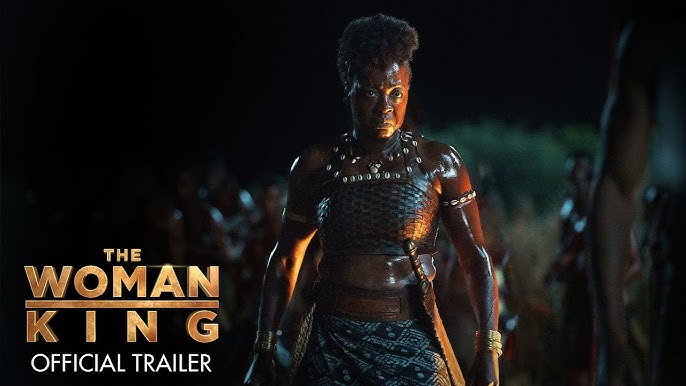The Woman King (2022)
- fanmovies
- November 1, 2024

The Woman King (2022) is an epic historical drama directed by Gina Prince-Bythewood, starring Viola Davis as General Nanisca, the fierce leader of the all-female warrior unit, the Agojie, in the West African kingdom of Dahomey during the 1820s. Inspired by true events, the story follows Nanisca and her warriors as they protect their people and resist encroaching threats from rival kingdoms and European slave traders. The film highlights the strength, courage, and unity of these women as they fight to defend their land and way of life.
Story and Themes
The narrative centers around the Agojie warriors and their leader Nanisca, who is dedicated to training a new generation of fighters, including a young recruit named Nawi (Thuso Mbedu). Themes of empowerment, resilience, loyalty, and self-discovery run throughout the story as Nanisca and Nawi confront their inner struggles and personal histories. The film also touches on complex ethical questions around the historical realities of slavery, as Dahomey grapples with its role in the slave trade. At its core, The Woman King celebrates the strength and resilience of Black women, showcasing a powerful and often overlooked chapter of history.
Acting and Characterization
Viola Davis delivers a powerful performance as General Nanisca, portraying a character who is both formidable in battle and emotionally complex. Her role is intense and layered, capturing both Nanisca’s ferocity as a warrior and her vulnerability as a leader facing moral and personal challenges. Thuso Mbedu as Nawi brings youthful energy and determination to her character’s journey from a defiant young woman to a dedicated warrior. Lashana Lynch as Izogie and Sheila Atim as Amenza also stand out, bringing depth and personality to their roles as key members of the Agojie. The chemistry among the cast members enhances the camaraderie and unity that define the Agojie, making the warriors feel like a genuine, tight-knit sisterhood.
Direction and Visuals
Gina Prince-Bythewood’s direction combines epic scale with intimate storytelling, balancing grand battle scenes with character-driven moments. The film’s fight choreography is impressive, emphasizing the skill, strength, and tactics of the Agojie warriors with authenticity. The cinematography captures the beauty and ruggedness of West Africa, highlighting vast landscapes, dense forests, and the vibrant world of Dahomey. The costumes, designed by Gersha Phillips, are rich and culturally inspired, adding to the immersive quality of the historical setting.
Historical Context and Criticisms
While The Woman King has been praised for shining a light on a lesser-known history of African female warriors, it has also faced criticism regarding historical accuracy. Some critics have noted that the film simplifies or downplays Dahomey’s involvement in the slave trade, focusing more on the Agojie’s resistance to European colonizers. While the film acknowledges the kingdom’s involvement, it portrays Dahomey as wrestling with the ethics of slavery, which has sparked debate among historians and audiences alike.
Overall Impression
The Woman King is a visually stunning, emotionally resonant film that delivers both as a historical epic and as a character-driven drama. Viola Davis’s performance, along with a strong supporting cast, and Gina Prince-Bythewood’s skillful direction make it a standout addition to the historical action genre. The film offers a celebration of strength, sisterhood, and resilience, telling an empowering story about a group of women who fought for their people and their independence. Despite debates about historical accuracy, The Woman King succeeds as an inspiring and compelling story that brings the Agojie warriors to the forefront of cinematic history.











